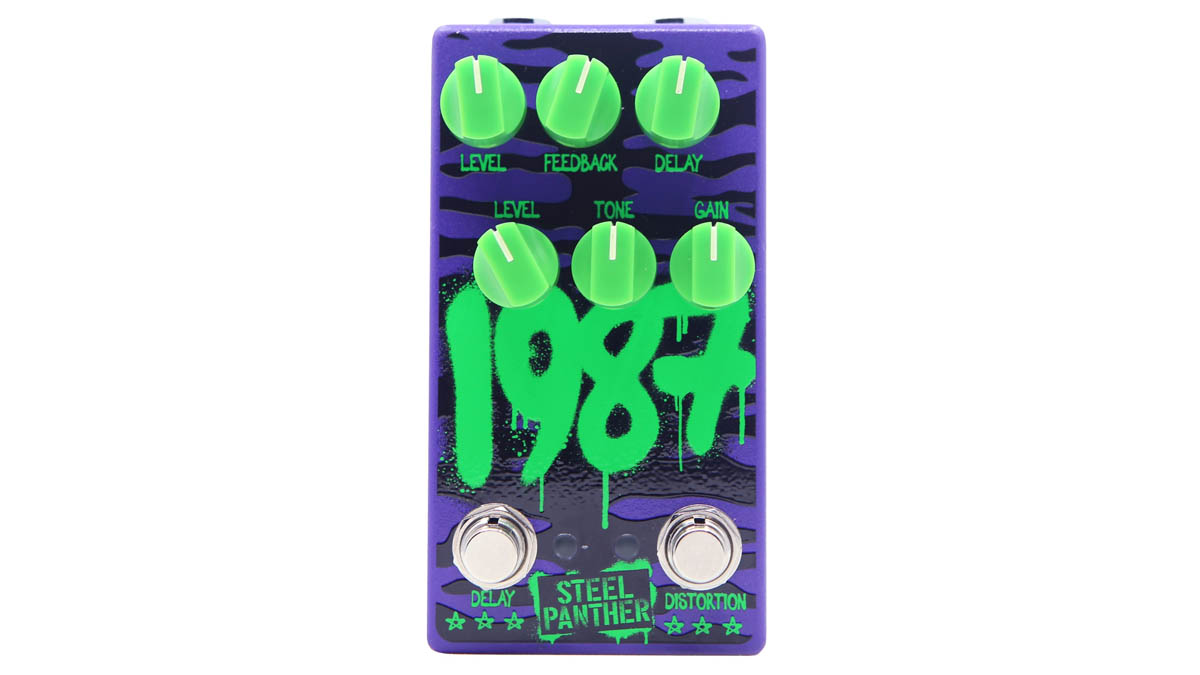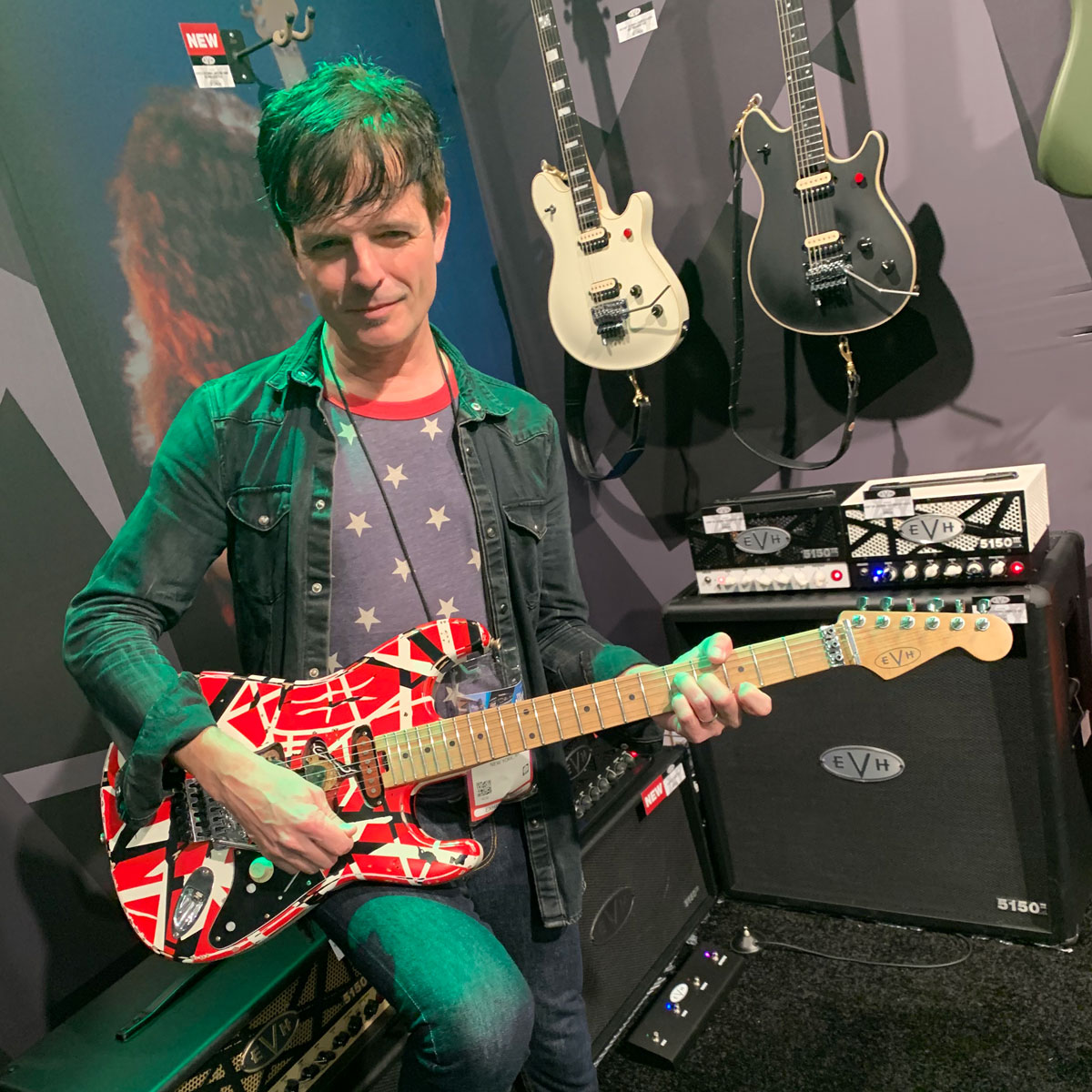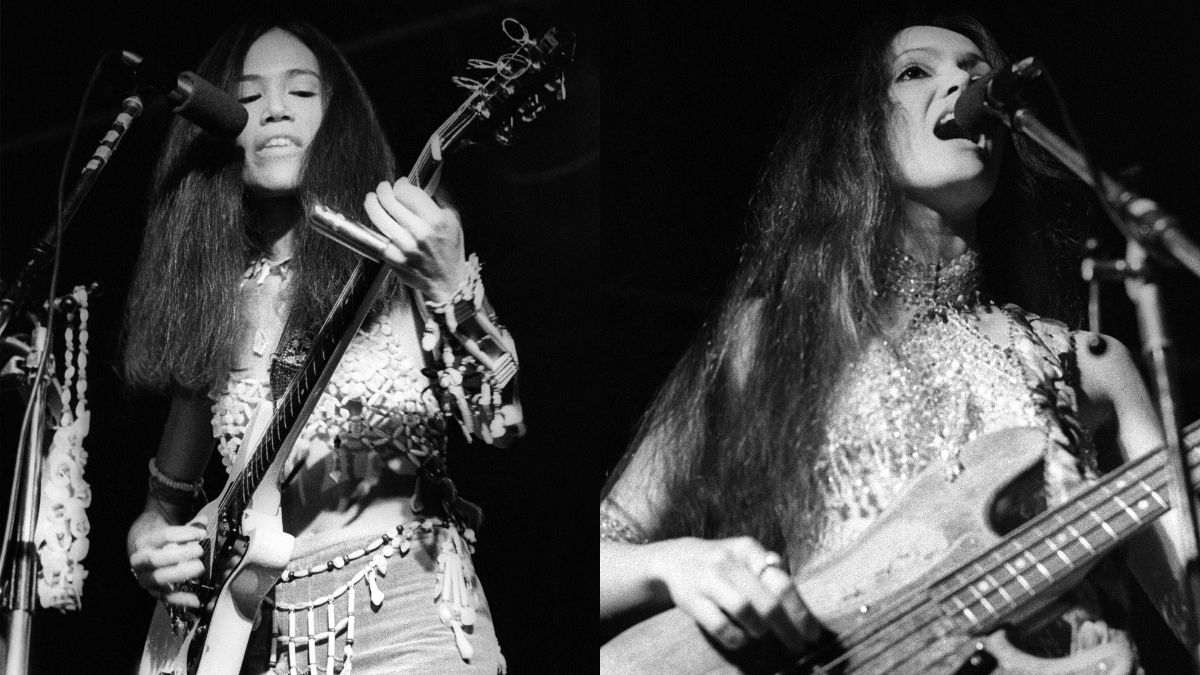Guitar World Verdict
A retro-fun pedal for hair and sleaze metal enthusiasts, particularly those of a certain age... If you can remember the '80s, you can remember these tones.
Pros
- +
Cool paint job.
- +
Fun sounds.
- +
Top-mounted jacks.
- +
Dual footswitch design allows you to use effects independently.
Cons
- -
Delay skews a little 'power ballad'.
- -
In 2023, not everyone wants 1987.
- -
The nagging fear that Satchel wired the circuit.
You can trust Guitar World
The year 1987 brings to mind certain memories for me: I had hair down to my waist; a SuperStrat with one humbucker and a Floyd Rose; a kickin’ hair metal band; Def Leppard, Whitesnake and Guns N’ Roses blaring from my speakers and well, come to think of it, not much else.
Don’t get me wrong, it was an adventurously fun chapter of my youth but also a time of self-reflection, as in, how much longer will this “nothin’ but a good time” last? All the same, it didn’t matter.
At some point, I moved on, but for others, the party is still raging. Take, for example, hair metal thespians Steel Panther, who have managed to continually keep the music and debauchery of the Sunset Strip alive and well in their live shows and albums. So much so, it’s surprising that the band hasn’t packaged more of itself as a brand rather than an act.
Well, hold up, not so fast! Steel Panther’s lead maestro, Satchel, has already tapped that entrepreneurial spirit by releasing an anodyne guitar pedal dubbed the 1987 Pedal that – mercifully – isn’t as controversial as his previously nicknamed ones.
Despite that, the 1987 Pedal is an imitative 2-in-1 stompbox with separate delay and distortion, and IMHO, part novelty and nostalgia coated in a sleaze metal paint job.

Finding specs to glean from the 1987 pedal is much like scouring for tickets to a Taylor Swift concert; it’s largely unavailable. The only thing online is, “With the grit of 100 chainsaws and the ability to repeat itself more than that super-stoned dude from Chemistry class, it is truly the ultimate badass accessory… next to eyeliner.”
Okay, got it, but like, no one spitballed Slippery When Wet on the whiteboard for engaging the delay? At any rate, the 1987 Pedal is uncomplicated and easy to figure out – like a Faster Pussycat song.
All the latest guitar news, interviews, lessons, reviews, deals and more, direct to your inbox!
Two rows of knobs govern the delay (level, feedback and delay) on top, and distortion (level, tone and gain) on the bottom. And thankfully, two footswitches allow you to turn each effect on or off separately, or be used together (which undoubtedly, most players will be doing). Finally, the 1987 is powered only with a 9-volt adapter.

I wanted to say the pedal summons “arena-like” tones, but it’s mostly a two-trick pony that stays in its own lane – and there’s nothing wrong with that. The distortion’s range is as narrow as a “devil horns” hand gesture – from thick and tight hot-rodded crunch to high-gain sizzle and zero nuance – but that’s expected here.
The delay is more of an echo that colors the tone of the pedal once you trigger it, and as a standalone delay, it’s passable. It’s the kinda echo you’d want on an extended power ballad solo.
Just the same, it’s a decent pedal, and in some respects, above average, but allow me to sum this up in a gentle way that most hair metal aficionados will understand and appreciate: the 1987 Pedal is kind of like a double bill of Poison and Winger – there are parts of its sound I really like, but I know there are better bands out there. And for many, it’s still a good time.
Specs
- PRICE: $198
- TYPE: Distortion and delay hair metal emulator pedal
- ORIGIN: Sunset Strip?
- CONTROLS: Level, Feedback, Delay, Level, Tone, Gain, dual footswitches
- FEATURES: Top-mounted jacks
- POWER: 9V DC power supply
- CONTACT: Steel Panther
Paul Riario has been the tech/gear editor and online video presence for Guitar World for over 25 years. Paul is one of the few gear editors who has actually played and owned nearly all the original gear that most guitarists wax poetically about, and has survived this long by knowing every useless musical tidbit of classic rock, new wave, hair metal, grunge, and alternative genres. When Paul is not riding his road bike at any given moment, he remains a working musician, playing in two bands called SuperTrans Am and Radio Nashville.


